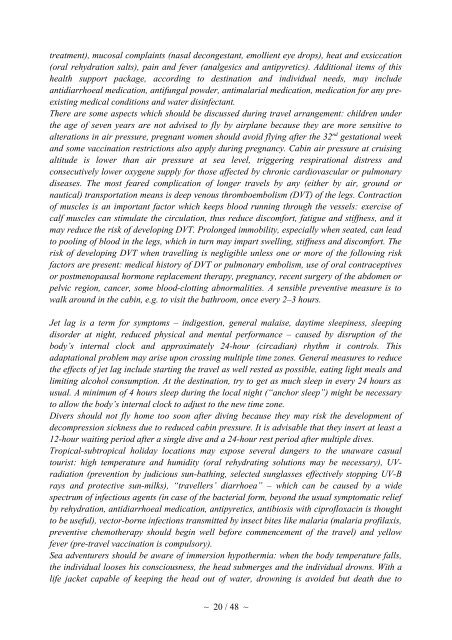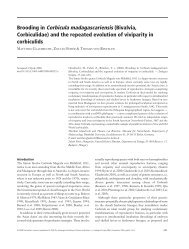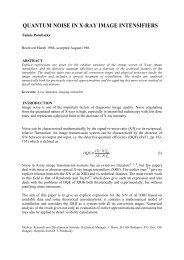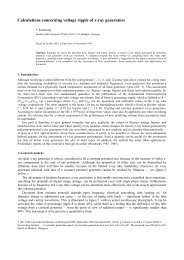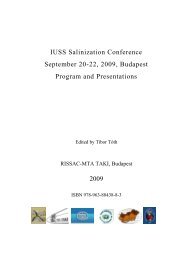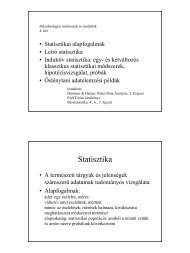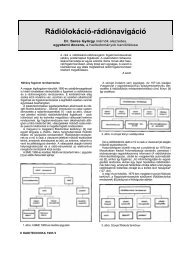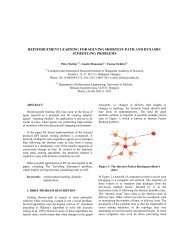A Hungarian Golf (korábban: Hole In One) elit életmód-magazin
A Hungarian Golf (korábban: Hole In One) elit életmód-magazin
A Hungarian Golf (korábban: Hole In One) elit életmód-magazin
You also want an ePaper? Increase the reach of your titles
YUMPU automatically turns print PDFs into web optimized ePapers that Google loves.
treatment), mucosal complaints (nasal decongestant, emollient eye drops), heat and exsiccation<br />
(oral rehydration salts), pain and fever (analgesics and antipyretics). Additional items of this<br />
health support package, according to destination and individual needs, may include<br />
antidiarrhoeal medication, antifungal powder, antimalarial medication, medication for any preexisting<br />
medical conditions and water disinfectant.<br />
There are some aspects which should be discussed during travel arrangement: children under<br />
the age of seven years are not advised to fly by airplane because they are more sensitive to<br />
alterations in air pressure, pregnant women should avoid flying after the 32 nd gestational week<br />
and some vaccination restrictions also apply during pregnancy. Cabin air pressure at cruising<br />
altitude is lower than air pressure at sea level, triggering respirational distress and<br />
consecutively lower oxygene supply for those affected by chronic cardiovascular or pulmonary<br />
diseases. The most feared complication of longer travels by any (either by air, ground or<br />
nautical) transportation means is deep venous thromboembolism (DVT) of the legs. Contraction<br />
of muscles is an important factor which keeps blood running through the vessels: exercise of<br />
calf muscles can stimulate the circulation, thus reduce discomfort, fatigue and stiffness, and it<br />
may reduce the risk of developing DVT. Prolonged immobility, especially when seated, can lead<br />
to pooling of blood in the legs, which in turn may impart swelling, stiffness and discomfort. The<br />
risk of developing DVT when travelling is negligible unless one or more of the following risk<br />
factors are present: medical history of DVT or pulmonary embolism, use of oral contraceptives<br />
or postmenopausal hormone replacement therapy, pregnancy, recent surgery of the abdomen or<br />
pelvic region, cancer, some blood-clotting abnormalities. A sensible preventive measure is to<br />
walk around in the cabin, e.g. to visit the bathroom, once every 2–3 hours.<br />
Jet lag is a term for symptoms – indigestion, general malaise, daytime sleepiness, sleeping<br />
disorder at night, reduced physical and mental performance – caused by disruption of the<br />
body’s internal clock and approximately 24-hour (circadian) rhythm it controls. This<br />
adaptational problem may arise upon crossing multiple time zones. General measures to reduce<br />
the effects of jet lag include starting the travel as well rested as possible, eating light meals and<br />
limiting alcohol consumption. At the destination, try to get as much sleep in every 24 hours as<br />
usual. A minimum of 4 hours sleep during the local night (“anchor sleep”) might be necessary<br />
to allow the body’s internal clock to adjust to the new time zone.<br />
Divers should not fly home too soon after diving because they may risk the development of<br />
decompression sickness due to reduced cabin pressure. It is advisable that they insert at least a<br />
12-hour waiting period after a single dive and a 24-hour rest period after multiple dives.<br />
Tropical-subtropical holiday locations may expose several dangers to the unaware casual<br />
tourist: high temperature and humidity (oral rehydrating solutions may be necessary), UVradiation<br />
(prevention by judicious sun-bathing, selected sunglasses effectively stopping UV-B<br />
rays and protective sun-milks), “travellers’ diarrhoea” – which can be caused by a wide<br />
spectrum of infectious agents (in case of the bacterial form, beyond the usual symptomatic relief<br />
by rehydration, antidiarrhoeal medication, antipyretics, antibiosis with ciprofloxacin is thought<br />
to be useful), vector-borne infections transmitted by insect bites like malaria (malaria profilaxis,<br />
preventive chemotherapy should begin well before commencement of the travel) and yellow<br />
fever (pre-travel vaccination is compulsory).<br />
Sea adventurers should be aware of immersion hypothermia: when the body temperature falls,<br />
the individual looses his consciousness, the head submerges and the individual drowns. With a<br />
life jacket capable of keeping the head out of water, drowning is avoided but death due to<br />
~ 20 / 48 ~


